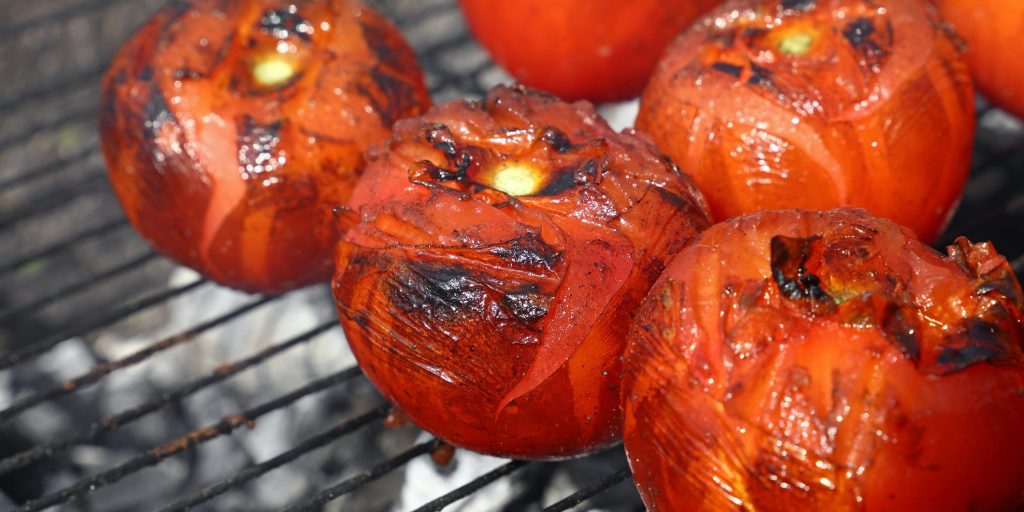- Certain food types are the best way to get your daily intake of natural anti-inflammatories.
- Spices, herbs, nuts, fruits, and more are packed with antioxidants that combat chronic inflammation.
- Cooking tomatoes or eating black pepper with turmeric can enhance their anti-inflammatory power.
An anti-inflammatory is any substance that reduces inflammation. That's important since chronic inflammation lasting for months or years has been linked to diseases ranging from heart disease to cancer.
You can get anti-inflammatories from a number of sources both natural and synthetic:
"You can find natural anti-inflammatory sources in foods and supplements that contain antioxidant compounds known as flavonoids and polyphenols," says Andrea McGrew, RDN, a registered dietitian nutritionist at Babylon. "Synthetic sources typically come in the form of medications like prednisone and Ibuprofen."
While medication is important in some cases, natural anti-inflammatories like those in foods are more readily absorbed than synthetics, and come with the other nutritional benefits of whole foods, says Amy Shapiro, RD, founder of Real Nutrition.
Here's how to get more disease-fighting anti-inflammatories into your diet.
1. Herbs and spices
The spice aisle of the grocery store is full of anti-inflammatory foods, says McGrew.
"Many spices inhibit certain inflammatory pathways in the body," she says.
These tasty and effective anti-inflammatories can improve your diet and health:
- Garlic: Garlic contains diallyl disulfide, an anti-inflammatory compound that combats chemicals that cause inflammation.
- Turmeric: This spice contains the compound polyphenol curcumin, an anti-inflammatory linked to relief of arthritis and even post-exercise muscle soreness.
- Cinnamon: Cinnamon contains cinnamaldehyde and cinnamic acid, which are linked to reduced inflammation
- Black pepper: Black pepper has its own anti-inflammatory properties, and also enhances the anti-inflammatory effect of turmeric and its antioxidant curcumin.
- Cardamom: Cardamom can block pathways that trigger inflammation.
Experiment with these and other anti-inflammatory herbs and spices by challenging yourself to incorporate one into each meal, says McGrew.
"Sprinkle some cinnamon in your morning oatmeal while enjoying a cup of fresh ginger tea," she says. "Add cracked black pepper to your salmon salad at lunch and add some turmeric to your garlic roasted vegetables for dinner."
2. Seafood
Seafood "ranks supreme," in terms of protein-rich anti-inflammatory foods, says McGrew. In fact, fish and shellfish have so many anti-inflammatory properties that research is exploring how to harness their anti-inflammatory properties for medicinal use.
The best anti-inflammatory fish are those rich in omega-3 fatty acids, which reduce inflammation. The fish with the most omega-3s are:
- Salmon
- Sardines
- Mackerel
- Oysters
- Cod
- Herring
- Anchovies
- Whitefish
- Bluefin tuna
The food and drug administration recommends eating 2-3 servings of fish each week. Steam, grill, or bake fish, and avoid frying or adding cream sauce, since saturated fats from cooking oils and dairy products can increase inflammation.
3. Fruits and vegetables
All fruits and vegetables are great for fighting inflammation. In fact, a 2018 scientific review found that eating more fruits and veggies was associated with fewer markers of inflammation. That said, some produce pack more antioxidants than others.
"Look for intense colors," says McGrew. "When fruits and vegetables are vibrantly colored it is a sign that fruit contains high levels of antioxidants."
Some of the best anti-inflammatory fruits and vegetables are:
- Tomatoes: Tomatoes contain the antioxidant compound lycopene and cooking them can boost how much lycopene you get.
- Leafy greens, like kale and spinach: Leafy greens are rich in vitamin K, which can reduce inflammatory disease, including eye disease.
- Berries: Berries contain anthocyanins, flavonols, and phenolic acids, all of which can reduce inflammation and cancer risk.
- Broccoli: Broccoli, cabbage and cauliflower all contain the anti-inflammatory compounds phenolics and sulforaphane.
Make a smoothie for breakfast or pack broccoli or cherry tomatoes for a snack. Raw fruits and vegetables are best, but they have benefits no matter how you eat them, says Shapiro.
"Anti-inflammatory compounds are most intact when eating produce raw but they are not completely lost to cooking," she says.
4. Nuts and seeds
Many nuts and seeds have omega-3 fatty acids and vitamin E, both of which fight inflammation.
A large cohort study published in 2016 found that eating more nuts was associated with fewer markers for inflammation. Incorporating these nuts into your diet can help reduce inflammation:
- Brazil nuts
- Almonds
- Walnuts
- Hazelnuts
- Pecans
- Pistachios
- Peanuts
Snack on a handful of nuts or sprinkle them into salads or oatmeal. Raw or roasted nuts are effective, but "watch the salt on roasted nut options," says Shapiro, since sodium may increase inflammation.
Foods that cause inflammation
Not all processed foods will cause inflammation, says Shapiro, but in general processed foods are more likely to cause inflammation than whole foods like fruits and vegetables, nuts, and proteins.
If you're following an anti-inflammatory diet, limit foods that can increase inflammation, including:
- Processed, simple carbohydrates like white bread, pasta, and baked goods
- Fried foods like donuts or French fries
- Red meat, particularly processed meats like sausages and bacon
- Soda, sports drinks, sweet tea, and other sweetened beverages
- Margarine, shortening, and canola oil.
The bottom line: "Processed foods high in saturated fat, sodium, and sugar tend to be the most inflammatory inducing foods," says McGrew.
Insider's takeaway
Chronic inflammation is linked to serious diseases, like cardiovascular disease and arthritis.
That's why eating more foods that naturally contain anti-inflammatories and avoiding inflammatory foods, can keep you healthy by helping to reduce, or even prevent, chronic inflammation.
Following the Mediterranean diet can decrease inflammation, but it's possible to use foods to reduce inflammation without prescribing to a specific diet.
"Base your diet on whole, nutrient-dense foods that contain antioxidants — and avoid processed products," says Shapiro.
